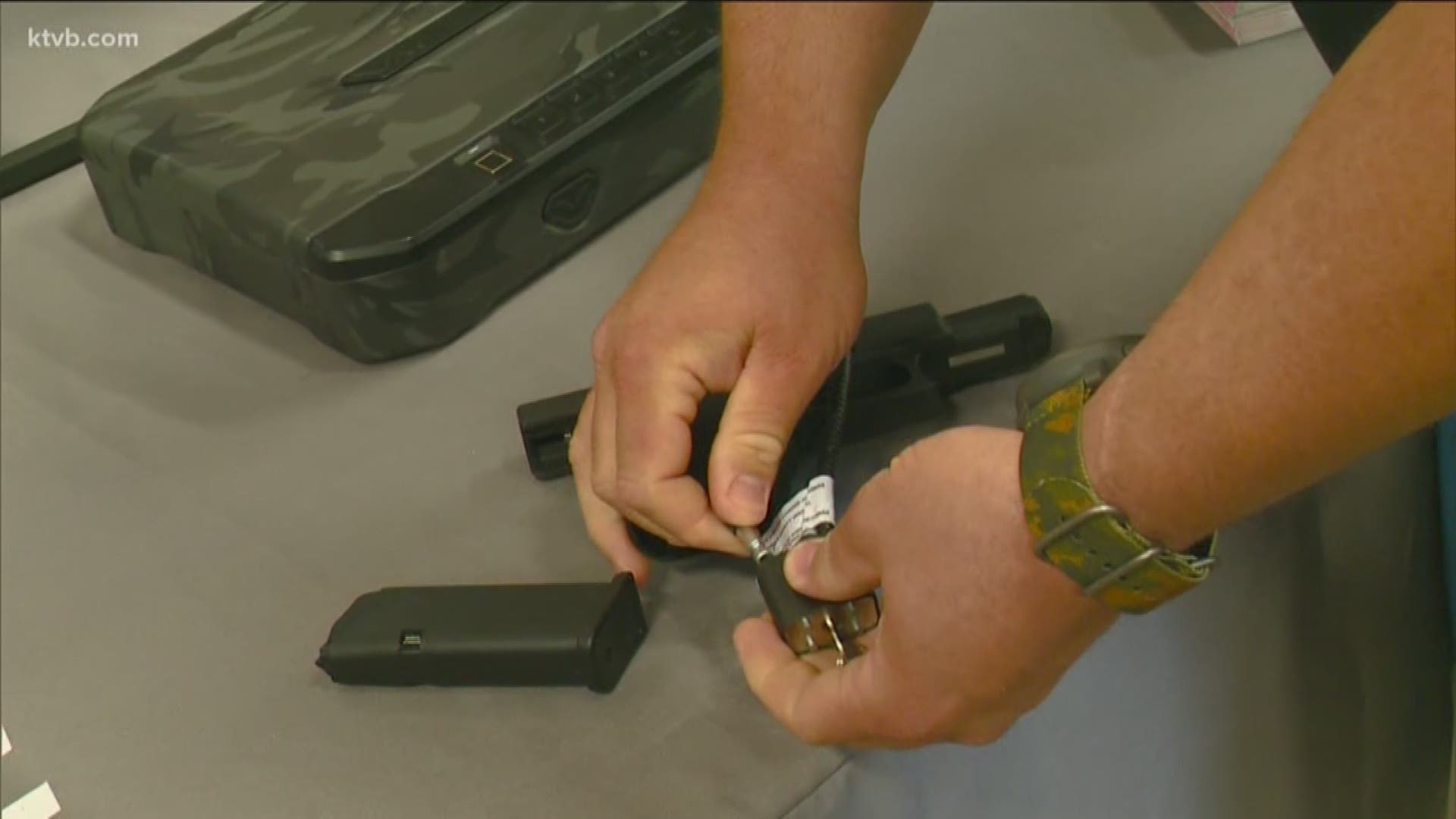BOISE, Idaho — This upcoming session, Idaho lawmakers will likely consider a bill that would allow survivors of sexual assault to obtain a civil protection order against their alleged perpetrators — even if there is no corresponding criminal case.
The bill, which Rep. Melissa Wintrow, D-Boise, told the Idaho Press she plans to sponsor, would allow people who have been sexually assaulted to obtain civil protection orders through the same avenues available to those who have experienced domestic violence.
Under that process, outlined in chapter 63 of the Idaho Statutes, a person can obtain a civil protection order against another person, even if there is no corresponding criminal investigation. The law allows for a 14-day ex parte temporary protection order — meaning the person asking for the order can make their case before a judge without the other person present.
Under current law, if the judge feels “irreparable injury could result from domestic violence if an order is not issued immediately without prior notice to the respondent,” the judge can issue the emergency protection order. The alleged perpetrator would be notified of the order.
After the initial two weeks, the people involved in the protection order can attend later hearings with attorneys, and the order can be quashed, or reissued. An order can last up to a year, Wintrow said, and can be renewed.


Wintrow’s bill updates the language to allow people who have been sexually assaulted to obtain protection orders as well.
“We’re adding definitions for what non-consensual sexual contact is, and what non-consensual penetration is, and the rest of the bill follows the processes in the Domestic Violence Act,” Wintrow said in a phone interview Monday.
Under current Idaho law, Wintrow said, judges aren’t considering guilt or lack of guilt of an alleged perpetrator when issuing a civil order of protection for domestic violence. They’re considering a sworn affidavit from the person seeking the order and the likelihood of future harm.
RELATED: Civil standby orders: What are they? And do Treasure Valley law enforcement agencies handle them?
Wintrow said the bill would ask a judge to consider, in the case of a sexual assault, the risk of future physical, emotional or psychological harm when deciding whether to issue an order.
As the law stands, a person can only pursue a protection order against someone in that manner if they’re in a domestic relationship — meaning they must live together, have an intimate relationship or have a child together.
“So right now if I were to be sexually assaulted by my neighbor, and I said I need a protection order because I’m afraid of physical, future harm, the judge would say, ‘You don’t have an intimate partner relationship with your neighbor, so I can’t issue you a protection order,’” Wintrow said. “Which is a problem.”
She said she’s heard from law-enforcement officials, community-based programs and victim-witness coordinators who say the law change is needed.
“Every single one of them has indicated, on varying levels of excitement, that this is a need, and there is no way to grant somebody (who has been sexually assaulted) an order of protection the way the law is currently written,” Wintrow said, in reference to civil protection orders.
Such orders are handled differently in criminal cases — once someone has been charged with a crime, a judge can decide to issue a no-contact order in the case, if the judge feels it is appropriate.
Annie Hightower, director of law and policy for the Idaho Coalition Against Sexual and Domestic Violence, remembers working on similar legislation in 2012 before she left the organization to work as Boise State University’s Title IX coordinator, investigating sexual assaults. She has since returned to the coalition and still feels the legislation is necessary.
“For most people who experience sexual assault, they experience it between ages 16 and 24,” Hightower said. “It’s typically someone that they know, but it may not be an intimate partner, though. It’s someone that they go to class with, or they are at a party with, or they somehow otherwise know, but aren’t necessarily dating. So they’re automatically excluded from a domestic violence (protection) order because they’re not in a dating relationship.”
Hightower remembers cases in which police told survivors to try to obtain a protection order against the person who sexually assaulted them.
“So they were already showing up to the courthouse, petitioning for a protection order, and then the court would tell them, ‘I’m sorry, we can’t do this for you,’” she said.
Sexual assault investigations are different from domestic violence cases in many instances, she said, in that an arrest does not typically occur quickly. Thus, a civil protection order could help keep a victim safe — and keep an alleged perpetrator away — over the course of an investigation.
Hightower argued civil protection orders in cases of sexual assault present fewer potential due-process problems for an alleged perpetrator than in domestic violence cases. The victim won’t be sharing a home with the person who sexually assaulted them, for instance, and firearms aren’t involved, either. She said she does expect some to argue against the bill out of concern for an alleged perpetrator’s due-process rights, however.
Wintrow addressed those concerns, as well.
“We’re not taking anybody else’s rights away,” Wintrow said. “We’re saying, ‘I’m afraid for my safety, I just want you to stay away from me.’”
The judge will decide whether the order is necessary, Wintrow said. If it is, the alleged perpetrator will still have a chance to present their side of the story at a due-process hearing 14 days later — and even if an order remains in place, it’s still not a conviction of a crime, she said.
An attempt to reach a local defense attorney Monday for comment on the proposed legislation was unsuccessful.
Wintrow has a draft of the bill, but is still finalizing its language. She said she’s optimistic about its passage.
“I have not heard any resistance,” she said.
More from our partner Idaho Press: Idaho Press reporters choose their top stories of 2019
Watch more Crime:
See them all in our YouTube Playlist:




